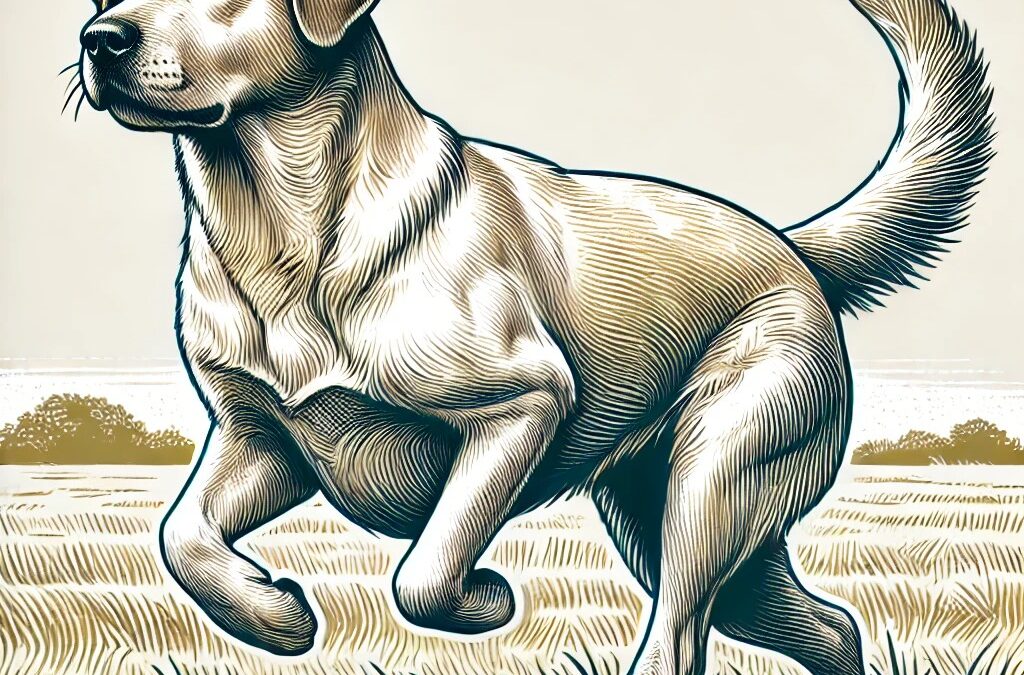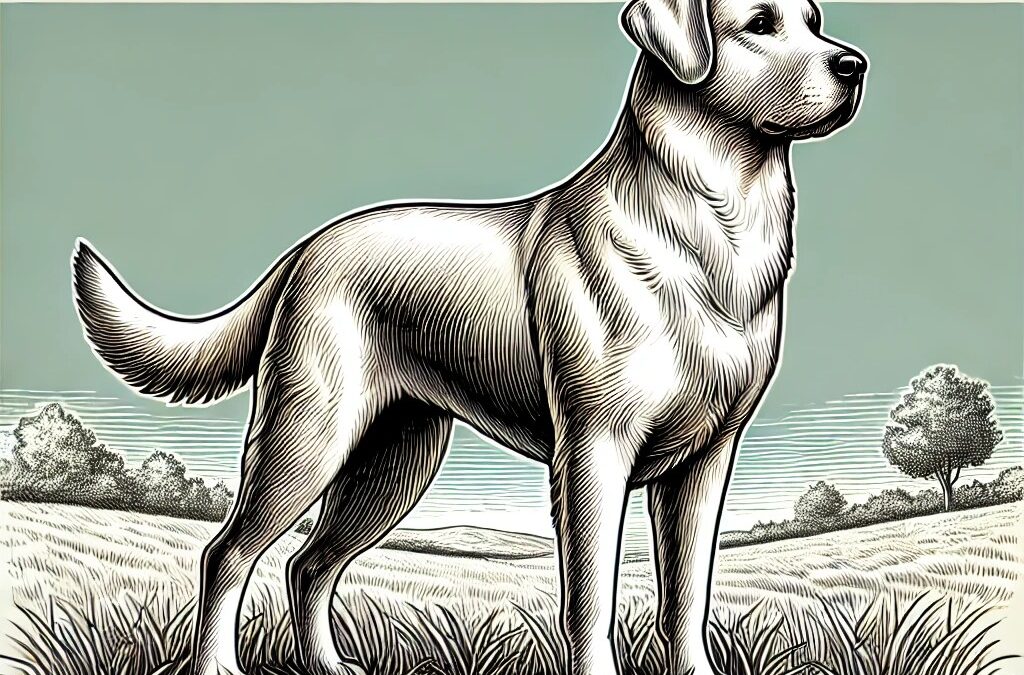
door TCMVET | 4 juli 2024 | Hondenkanker en tumoren
Als eigenaren van gezelschapsdieren streven wij ernaar om onze harige gezelschapsdieren de best mogelijke zorg te bieden. Twee belangrijke gezondheidsrisico's, kanker bij honden en osteoporose, vormen echter ernstige risico's voor hun welzijn. Dit artikel gaat in op de risicofactoren die verband houden met deze aandoeningen en biedt inzicht in preventiestrategieën, met als doel eigenaren van gezelschapsdieren uit te rusten met de kennis die nodig is om de gezondheid van hun honden te beschermen.
Kanker bij honden begrijpen
Kanker bij honden is een van de belangrijkste doodsoorzaken onder honden en treft verschillende rassen en leeftijden. Het omvat een reeks kwaadaardige aandoeningen, waaronder lymfoom, mestceltumoren en osteosarcoom. Het identificeren van de risicofactoren kan helpen bij vroege detectie en interventie.
Veel voorkomende risicofactoren voor hondenkanker
- Leeftijd: Oudere honden zijn vatbaarder voor kanker als gevolg van de opgebouwde cellulaire schade in de loop van de tijd.
- Ras: Bepaalde rassen, zoals Golden Retrievers, Boxers en Rottweilers, hebben een hogere aanleg voor specifieke vormen van kanker.
- Genetics: Familiegeschiedenis speelt een cruciale rol; honden met kankergevoelige familieleden lopen een groter risico.
- Environmental Exposure: Langdurige blootstelling aan kankerverwekkende stoffen, zoals pesticiden en tabaksrook, kan het risico op kanker verhogen.
- Dieet en obesitas: Slechte voeding en zwaarlijvigheid kunnen bijdragen aan de ontwikkeling van kanker, wat het belang van evenwichtige voeding benadrukt.
Herkennen van osteoporose bij honden
Osteoporose, een aandoening die wordt gekenmerkt door verzwakte botten, wordt minder vaak besproken, maar is even zorgwekkend. Het kan leiden tot breuken en verminderde mobiliteit, wat een aanzienlijke invloed heeft op de levenskwaliteit van een hond.
Veel voorkomende risicofactoren voor osteoporose bij honden
- Leeftijd: Net als bij kanker zijn oudere honden gevoeliger voor osteoporose als gevolg van natuurlijk verlies van botdichtheid.
- Ras: Kleine rassen en speelgoedrassen zijn bijzonder gevoelig, maar ook grote rassen kunnen getroffen worden.
- Voedingstekorten: Gebrek aan essentiële voedingsstoffen, vooral calcium en vitamine D, kan de botten verzwakken.
- Gebrek aan lichaamsbeweging: Regelmatige fysieke activiteit is cruciaal voor het behoud van de botdichtheid; een sedentaire levensstijl verhoogt het risico op osteoporose.
- Hormonal Imbalances: Aandoeningen zoals hypothyreoïdie en hyperparathyreoïdie kunnen bijdragen aan verlies van botdichtheid.
Preventiestrategieën voor hondenkanker en osteoporose
Voorkomen is altijd beter dan genezen. Het implementeren van proactieve maatregelen kan het risico op zowel kanker als osteoporose bij honden aanzienlijk verminderen.
Dieet en voeding
- Gebalanceerd dieet: Zorg voor een uitgebalanceerd dieet dat rijk is aan essentiële voedingsstoffen. Gebruik hoogwaardige eiwitten, gezonde vetten en een verscheidenheid aan groenten en fruit.
- Supplementen: Overweeg supplementen zoals omega-3-vetzuren, antioxidanten en vitamines om de algehele gezondheid en immuniteit te ondersteunen.
- Gewichtsbeheer: Handhaaf een gezond gewicht om het risico op obesitasgerelateerde kankers en verlies van botdichtheid te verminderen.
Regelmatige lichaamsbeweging
- Physical Activity: Zorg ervoor dat uw hond regelmatig beweegt om de botten te versterken en een gezond gewicht te behouden. Activiteiten zoals wandelen, rennen en spelen zijn nuttig.
- Krachttraining: Voeg krachttrainingsoefeningen toe, zoals traplopen of spelen met weerstandsspeelgoed, om de botdichtheid op te bouwen.
Routinematige veterinaire controles
- Regelmatige vertoningen: Plan routinematige veterinaire bezoeken voor vroege detectie van potentiële gezondheidsproblemen. Regelmatige bloedonderzoeken en beeldvorming kunnen problemen identificeren voordat ze ernstig worden.
- Tandheelkundige gezondheid: Mondhygiëne is essentieel, omdat infecties zich kunnen verspreiden en de algehele gezondheid, inclusief de botten, kunnen aantasten.
Milieuveiligheid
- Beperk de blootstelling aan kankerverwekkende stoffen: Vermijd blootstelling van uw hond aan schadelijke chemicaliën, pesticiden en passief roken.
- Veilige leefomgeving: Zorg voor een veilige en schone leefomgeving om de kans op infecties en verwondingen te verkleinen.
Het begrijpen van de risicofactoren voor kanker bij honden en osteoporose is cruciaal voor de proactieve verzorging van huisdieren. Door preventieve maatregelen te nemen, waaronder een uitgebalanceerd dieet, regelmatige lichaamsbeweging en routinematige veterinaire controles, kunt u het risico op deze aandoeningen aanzienlijk verminderen en ervoor zorgen dat uw hond een gezond en bevredigend leven leidt. Blijf op de hoogte, blijf waakzaam en koester elk moment met uw trouwe metgezel.

door TCMVET | 4 juli 2024 | Geneesmiddelen en therapieën
Als toegewijde eigenaren van gezelschapsdieren is het garanderen van het comfort en het welzijn van onze harige metgezellen van het allergrootste belang. Pijnbestrijding is een cruciaal aspect van de diergeneeskundige zorg, vooral voor honden die lijden aan chronische aandoeningen of herstellen van een operatie. Dit artikel gaat in op de voordelen en risico's van verschillende pijnstillers voor honden en biedt inzichten waarmee u weloverwogen beslissingen kunt nemen over de pijnverlichting van uw huisdier.
Pijn bij honden begrijpen
Het herkennen van pijn bij honden kan een uitdaging zijn, omdat ze vaak hun ongemak verbergen. Veelvoorkomende tekenen van pijn zijn onder meer hinken, verminderde activiteit, veranderingen in de eetlust en vocalisaties. Het vroegtijdig identificeren van deze symptomen en het inwinnen van veterinair advies is cruciaal voor effectief pijnmanagement.
Soorten pijnstillers voor honden
- Niet-steroïde anti-inflammatoire geneesmiddelen (NSAID's)
- Voordelen: NSAID's zoals carprofen en meloxicam worden vaak voorgeschreven vanwege hun ontstekingsremmende en pijnstillende eigenschappen. Ze zijn effectief bij aandoeningen zoals artritis en postoperatieve pijn.
- Risico's: Mogelijke bijwerkingen zijn maag-darmproblemen, nierbeschadiging en leverproblemen. Regelmatige controle en naleving van de doseringsaanbevelingen zijn essentieel.
- Opioïden
- Voordelen: Opioïden zoals tramadol en morfine zorgen voor een krachtige pijnverlichting, waardoor ze geschikt zijn voor ernstige pijn en postoperatieve zorg.
- Risico's: Bijwerkingen kunnen onder meer zijn: sedatie, constipatie en kans op afhankelijkheid. Ze moeten onder strikt veterinair toezicht worden gebruikt.
- Gabapentine
- Voordelen: Gabapentine is effectief bij neuropathische pijn en als onderdeel van multimodaal pijnmanagement. Het wordt vaak gebruikt bij chronische pijnklachten.
- Risico's: Mogelijke bijwerkingen zijn sedatie en ataxie. Geleidelijke dosisaanpassingen worden aanbevolen om bijwerkingen tot een minimum te beperken.
- Corticosteroïden
- Voordelen: Corticosteroïden zoals prednison kunnen ontstekingen verminderen en pijnverlichting bieden bij aandoeningen zoals auto-immuunziekten en ernstige allergieën.
- Risico's: Langdurig gebruik kan leiden tot bijwerkingen zoals verhoogde dorst, honger en potentieel voor immuunsuppressie. Ze moeten met voorzichtigheid en onder veterinaire begeleiding worden gebruikt.
- Alternatieve en complementaire therapieën
- CBD-olie: CBD-olie wordt steeds populairder vanwege de ontstekingsremmende en pijnstillende eigenschappen en kan een waardevolle aanvulling zijn op pijnbeheersingsstrategieën.
- Acupunctuur en fysiotherapie: Deze niet-farmacologische benaderingen kunnen de pijnverlichting verbeteren en de mobiliteit verbeteren, vaak gebruikt in combinatie met traditionele medicijnen.
Afweging van voordelen en risico's
Wanneer u pijnstillers voor uw hond overweegt, is het van cruciaal belang om de voordelen af te wegen tegen de mogelijke risico’s. Hier zijn enkele belangrijke factoren waarmee u rekening moet houden:
- Veterinaire begeleiding: Raadpleeg altijd uw dierenarts voordat u met een pijnbestrijdingsregime begint. Zij kunnen u advies op maat geven op basis van de specifieke behoeften en gezondheidstoestand van uw hond.
- Toezicht houden: Regelmatige controles en monitoring zijn essentieel om eventuele bijwerkingen vroegtijdig te kunnen identificeren en de behandelplannen dienovereenkomstig aan te passen.
- Combinatietherapie: Soms kan een combinatie van medicijnen en therapieën optimale pijnverlichting bieden met minder bijwerkingen.
- Natuurlijke supplementen: Het integreren van natuurlijke supplementen, zoals omega-3-vetzuren en glucosamine, kan de gezondheid van de gewrichten ondersteunen en ontstekingen verminderen, als aanvulling op traditionele pijnstillers.
Effectief pijnbeheer bij honden vereist een zorgvuldige balans tussen voordelen en risico's. Door de verschillende beschikbare soorten pijnstillers te begrijpen en nauw samen te werken met uw dierenarts, kunt u ervoor zorgen dat uw harige vriend een comfortabel en pijnvrij leven leidt. Blijf waakzaam, geïnformeerd en proactief bij het beheersen van de pijn van uw hond, en koester de vreugde en het gezelschap dat hij in uw leven brengt.

door TCMVET | 4 juli 2024 | Hondenkanker en tumoren
Botkanker bij honden, ook bekend als osteosarcoom, is een geduchte tegenstander voor onze harige metgezellen. Als eigenaren van gezelschapsdieren is het begrijpen van de gevolgen van deze ziekte van cruciaal belang, vooral als het gaat om de kans op verlamming. Dit artikel gaat in op de fijne kneepjes van botkanker bij honden, de symptomen ervan, de behandelingsopties en hoe dit tot verlamming kan leiden, en biedt waardevolle inzichten voor eigenaren van gezelschapsdieren die hun geliefde huisdieren willen beschermen.
Botkanker bij honden begrijpen
Osteosarcoom is de meest voorkomende vorm van botkanker bij honden en treft vooral grote en grote rassen. Deze agressieve kanker vindt zijn oorsprong in het bot, wat leidt tot pijn, zwelling en uiteindelijk de vernietiging van het bot zelf. Vroege detectie is essentieel voor een effectieve behandeling, maar de symptomen kunnen vaak worden aangezien voor minder ernstige aandoeningen zoals artritis of lichte verwondingen.
Symptomen waar u op moet letten
Het herkennen van de vroege tekenen van osteosarcoom kan een aanzienlijk verschil maken in de prognose van uw hond. Veel voorkomende symptomen zijn onder meer:
- Kreupelheid: Aanhoudend mank lopen of moeite hebben met lopen is vaak een van de eerste tekenen.
- Zwelling: Merkbare zwelling op de plaats van de tumor, meestal rond de ledematen.
- Pijn: Uw hond kan tekenen van ongemak of pijn vertonen bij aanraking of bij gebruik van het aangedane ledemaat.
- Vermoeidheid: Verminderd activiteitenniveau en onwil om te spelen of te sporten.
- Gewichtsverlies: Onverklaarbaar gewichtsverlies ondanks normale eetgewoonten.
Het verband tussen botkanker en verlamming
Een van de meest verwoestende complicaties van botkanker bij honden is de kans op verlamming. Naarmate de tumor groeit, kan deze druk uitoefenen op omliggende weefsels, inclusief zenuwen. Als de kanker zich uitbreidt naar de wervelkolom of het ruggenmerg aantast, kan dit leiden tot gedeeltelijke of volledige verlamming. Deze vooruitgang onderstreept het belang van vroege detectie en interventie.
Diagnose en behandelingsopties
Het diagnosticeren van osteosarcoom omvat doorgaans een combinatie van lichamelijk onderzoek, röntgenfoto's en biopsieën. Eenmaal bevestigd, kunnen de behandelingsopties het volgende omvatten:
- Chirurgie: Amputatie van het aangedane ledemaat wordt vaak aanbevolen om de primaire tumor te verwijderen en de pijn te verlichten.
- Chemotherapie: Om uitzaaiingen aan te pakken en de overlevingskansen te verbeteren, wordt chemotherapie vaak naast een operatie toegediend.
- Bestralingstherapie: Dit kan worden gebruikt om pijn te beheersen en de tumorgrootte te verkleinen, vooral in gevallen waarin een operatie niet haalbaar is.
Alternatieve en complementaire therapieën
Naast conventionele behandelingen onderzoeken veel eigenaren van gezelschapsdieren alternatieve therapieën om de gezondheid van hun hond te ondersteunen. Deze kunnen het volgende omvatten:
- CBD-olie: CBD-olie staat bekend om zijn ontstekingsremmende en pijnstillende eigenschappen en wordt steeds vaker gebruikt om de symptomen van kanker te beheersen en de kwaliteit van leven te verbeteren.
- Voedingssupplementen: Supplementen zoals omega-3-vetzuren en antioxidanten kunnen de algehele gezondheid ondersteunen en het immuunsysteem versterken.
- Fysiotherapie: Op maat gemaakte oefeningen en therapieën kunnen helpen de mobiliteit en spierkracht te behouden, waardoor het risico op verlamming wordt verminderd.
Preventieve maatregelen en regelmatige controles
Hoewel osteosarcoom niet altijd kan worden voorkomen, kunnen regelmatige veterinaire controles en een gezonde levensstijl een belangrijke rol spelen bij de vroege detectie en behandeling. Het handhaven van een actieve levensstijl, het bieden van een uitgebalanceerd dieet en het monitoren van eventuele veranderingen in het gedrag of de fysieke conditie van uw hond zijn essentiële stappen om zijn gezondheid te beschermen.
Botkanker bij honden is een uitdagende diagnose, maar het begrijpen van de implicaties ervan, vooral de dreiging van verlamming, stelt eigenaren van gezelschapsdieren in staat proactieve maatregelen te nemen. Vroegtijdige detectie, gecombineerd met een uitgebreid behandelplan, kan de levenskwaliteit van uw hond aanzienlijk verbeteren en mogelijk de tijd die hij bij u doorbrengt verlengen. Blijf waakzaam, blijf op de hoogte en koester elk moment met uw trouwe metgezel.

door TCMVET | 3 juli 2024 | Hondenkanker en tumoren
Als we aan kanker bij honden denken, ligt de nadruk vaak op tumoren en hun directe effecten. De impact van kanker op het evenwicht en de coördinatie van een hond is echter een cruciaal aspect dat de kwaliteit van leven aanzienlijk kan beïnvloeden. Dit artikel onderzoekt hoe kanker deze kritieke functies beïnvloedt en wat eigenaren van gezelschapsdieren kunnen doen om hun harige vrienden te helpen deze uitdagingen het hoofd te bieden.
Het verband tussen hondenkanker en evenwichtsproblemen
1. Hersentumoren en neurologische effecten
Hersentumoren zijn een primaire oorzaak van evenwichts- en coördinatieproblemen bij honden. Deze tumoren kunnen de normale functies van de hersenen verstoren, inclusief de functies die beweging en evenwicht controleren. Symptomen kunnen zijn:
- Hoofd kantelen: Een merkbare kanteling van het hoofd naar één kant.
- Cirkelen: Lopen in cirkels in plaats van in een rechte lijn.
- Struikelen en vallen: Moeite met het bewaren van het evenwicht, wat leidt tot frequente valpartijen.
- Aanvallen: Ongecontroleerde bewegingen die de algehele coördinatie kunnen beïnvloeden.
2. Tumoren in het binnenoor
Het binnenoor speelt een cruciale rol bij het handhaven van het evenwicht. Tumoren in dit gebied kunnen het vestibulaire systeem verstoren, wat leidt tot:
- Duizeligheid: Honden kunnen gedesoriënteerd en onstabiel overkomen.
- Nystagmus: Snelle, onwillekeurige oogbewegingen.
- Verlies van coördinatie: Moeite met normaal lopen of staan.
3. Gemetastaseerde kanker
Kanker die zich van de oorspronkelijke locatie naar andere delen van het lichaam verspreidt, kan ook het evenwicht en de coördinatie beïnvloeden. Kanker die uitzaait naar de wervelkolom kan bijvoorbeeld het ruggenmerg samendrukken, waardoor het vermogen van een hond om te lopen en het evenwicht te bewaren wordt beïnvloed.
Symptomen waar u op moet letten
Vroege detectie is de sleutel tot het beheersen van evenwichts- en coördinatieproblemen bij honden met kanker. Symptomen die moeten worden gecontroleerd, zijn onder meer:
- Onvaste gang: Lopen met wiebelende of onvaste stappen.
- Gebrek aan coordinatie: Moeilijkheid bij het uitvoeren van routinematige bewegingen.
- Onwil om te verhuizen: Het vermijden van fysieke activiteit vanwege ongemak of instabiliteit.
- Frequente valpartijen: Vaker struikelen of vallen dan normaal.
- Oog- en hoofdbewegingen: Abnormale oogbewegingen of kantelen van het hoofd.
Diagnose en behandeling
Een juiste diagnose en tijdige interventie kunnen helpen de impact van kanker op het evenwicht en de coördinatie van uw hond te beheersen. Veterinaire zorg kan bestaan uit:
1. Neurologisch onderzoek
Een uitgebreid neurologisch onderzoek kan helpen de onderliggende oorzaak van evenwichtsproblemen te identificeren. Dit kan het volgende inhouden:
- Reflextesten: Controle van ledemaatreflexen en -reacties.
- Beoordeling van oogbewegingen: Observeren van nystagmus of abnormale oogbewegingen.
- Ganganalyse: Evaluatie van looppatronen en coördinatie.
2. Beeldvormingstechnieken
Geavanceerde beeldvormingstechnieken zoals MRI- en CT-scans kunnen tumoren in de hersenen, het binnenoor of de wervelkolom detecteren, waardoor een duidelijk beeld ontstaat van de getroffen gebieden.
3. Behandelingsopties
De behandeling hangt af van het type en de locatie van de kanker. Opties kunnen zijn:
- Chirurgie: Het verwijderen van tumoren die toegankelijk en operabel zijn.
- Bestralingstherapie: Tumoren richten met bestraling om ze te verkleinen en de symptomen te verlichten.
- Chemotherapie: Medicijnen gebruiken om de groei en verspreiding van tumoren te vertragen.
- Ondersteunende zorg: Medicijnen om de symptomen onder controle te houden en de kwaliteit van leven te verbeteren.
Ondersteuning van uw hond thuis
Om uw hond te helpen omgaan met evenwichts- en coördinatieproblemen, moet u thuis enkele aanpassingen maken:
1. Veilige omgeving
Zorg ervoor dat uw huis vrij is van obstakels waardoor uw hond kan struikelen of vallen. Gebruik antislipmatten en verwijder rommel uit paden.
2. Hulpmiddelen
Overweeg het gebruik van harnassen of steunbanden om uw hond veilig te laten bewegen.
3. Zachte oefening
Moedig zachte oefeningen aan om de spierkracht en coördinatie te behouden, maar vermijd activiteiten die vallen of letsel kunnen veroorzaken.
4. Regelmatige dierenartsbezoeken
Blijf op de hoogte van regelmatige veterinaire controles om de toestand van uw hond te controleren en indien nodig de behandelingen aan te passen.
Kanker bij honden kan een aanzienlijke invloed hebben op het evenwicht en de coördinatie van een hond, maar met vroege detectie, passende behandeling en ondersteunende zorg kunt u uw harige vriend helpen deze uitdagingen het hoofd te bieden. Door waakzaam en proactief te blijven, kunt u ervoor zorgen dat uw hond de best mogelijke levenskwaliteit behoudt.

door TCMVET | 3 juli 2024 | Hondenkanker en tumoren
Het begrijpen van de ingewikkelde relatie tussen kanker bij honden en de bloedsuikerspiegel is van vitaal belang voor eigenaren van gezelschapsdieren en dierenartsen. Recente onderzoeken suggereren dat het beheersen van de bloedsuikerspiegel een cruciale rol kan spelen bij de behandeling en preventie van kanker bij honden. Dit artikel gaat dieper in op het verband tussen kanker en bloedsuikerspiegel en belicht belangrijke inzichten en praktische stappen om de gezondheid van uw hond te behouden.
Hoe bloedsuikerspiegels hondenkanker beïnvloeden
1. De rol van glucose bij de groei van kanker
Kankercellen gedijen op glucose en gebruiken het als primaire energiebron om hun snelle groei en proliferatie te stimuleren. Verhoogde bloedsuikerspiegels kunnen een omgeving creëren die de ontwikkeling en verspreiding van kanker ondersteunt. Door dit verband te begrijpen, kunnen eigenaren van gezelschapsdieren proactieve stappen ondernemen om de bloedsuikerspiegel van hun hond te reguleren, waardoor de progressie van kanker mogelijk wordt vertraagd.
2. Insulineresistentie en kankerrisico
Net als bij mensen kan insulineresistentie bij honden leiden tot verhoogde bloedsuikerspiegels. Insulineresistentie treedt op wanneer cellen minder reageren op insuline, een hormoon dat helpt bij het reguleren van de bloedsuikerspiegel. Deze aandoening verhoogt niet alleen het risico op diabetes, maar creëert ook een gunstige omgeving waarin kankercellen kunnen groeien. Het monitoren en beheersen van de insulineresistentie is daarom een cruciaal aspect van de preventie en behandeling van kanker bij honden.
Symptomen en diagnose
Het herkennen van de symptomen van een verstoorde bloedsuikerspiegel en kanker bij honden is essentieel voor vroege detectie en interventie. Veelvoorkomende symptomen zijn onder meer:
- Verhoogde dorst en plassen: Deze kunnen wijzen op een hoge bloedsuikerspiegel.
- Unexplained Weight Loss: Ondanks goed eten kan gewichtsverlies wijzen op diabetes of kanker.
- Lethargie: Lage energieniveaus kunnen een symptoom zijn van zowel een hoge bloedsuikerspiegel als kanker.
- Frequente infecties: Een hoge bloedsuikerspiegel kan het immuunsysteem verzwakken, waardoor honden vatbaarder worden voor infecties.
- Zichtbare tumoren of knobbels: Fysieke tekenen van kanker die onmiddellijke veterinaire aandacht vereisen.
Om deze aandoeningen te diagnosticeren, kunnen dierenartsen bloedtesten, glucosetolerantietests en biopsieën uitvoeren om de onderliggende problemen te identificeren en een behandelplan te ontwikkelen.
Beheer van de bloedsuikerspiegel bij honden met kanker
1. Dieet en voeding
Een uitgebalanceerd dieet met weinig eenvoudige suikers en veel eiwitten en vezels kan de bloedsuikerspiegel helpen reguleren. Voedingsmiddelen met een lage glycemische index geven glucose langzaam af, waardoor pieken in de bloedsuikerspiegel worden voorkomen. Overweeg om deze elementen in het dieet van uw hond op te nemen:
- Magere eiwitten: Kip, kalkoen en vis
- Vezelrijke groenten: Sperziebonen, wortelen en pompoen
- Volkoren: Bruine rijst en haver
Overleg met uw dierenarts om een voedingsplan op maat op te stellen dat voldoet aan de specifieke behoeften van uw hond.
2. Regelmatige lichaamsbeweging
Lichamelijke activiteit helpt de bloedsuikerspiegel te reguleren en een gezond gewicht te behouden, waardoor het risico op zowel diabetes als kanker wordt verminderd. Betrek uw hond regelmatig bij wandelingen, spelsessies en activiteiten die hem actief en fit houden.
3. Medicijnen en supplementen
In sommige gevallen kunnen dierenartsen medicijnen voorschrijven om de bloedsuikerspiegel onder controle te houden of supplementen aanbevelen die de metabolische gezondheid ondersteunen. Deze kunnen het volgende omvatten:
- Insuline: Voor honden met de diagnose diabetes
- Omega-3 vetzuren: Ter ondersteuning van de algehele gezondheid en om ontstekingen te verminderen
- Antioxidanten: Om oxidatieve stress te bestrijden en het immuunsysteem te ondersteunen
4. Regelmatige controle
Regelmatige veterinaire controles en bloedtesten zijn van cruciaal belang voor het controleren van de bloedsuikerspiegel en de algehele gezondheid van uw hond. Vroegtijdige detectie van eventuele onevenwichtigheden maakt snelle aanpassingen aan hun behandelplan mogelijk.
Het begrijpen van het verband tussen kanker bij honden en de bloedsuikerspiegel biedt een nieuw perspectief op het beheer van de gezondheid van uw hond. Door een evenwichtige bloedsuikerspiegel te handhaven door middel van goede voeding, lichaamsbeweging en diergeneeskundige zorg, kunt u een gezondere omgeving creëren die de progressie van kanker kan helpen voorkomen of vertragen. Blijf proactief en op de hoogte om ervoor te zorgen dat uw harige vriend een lang, gezond leven heeft.





